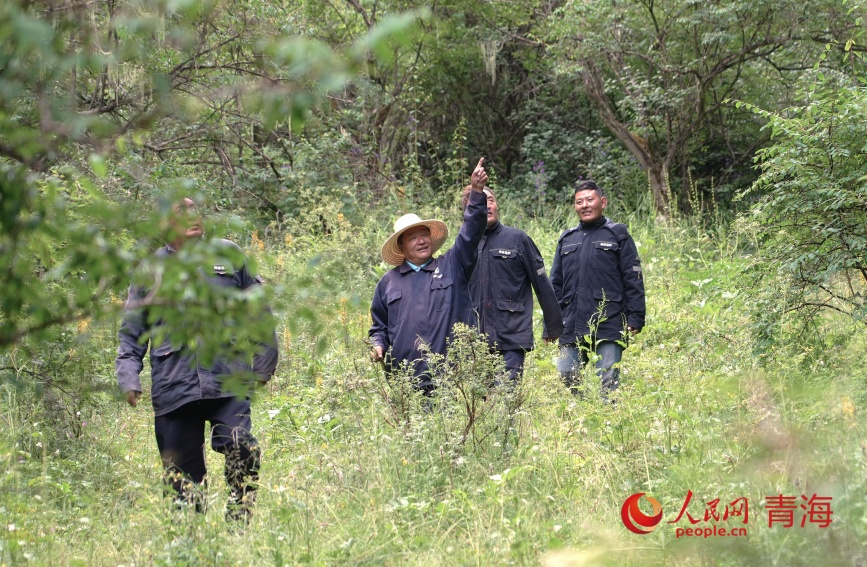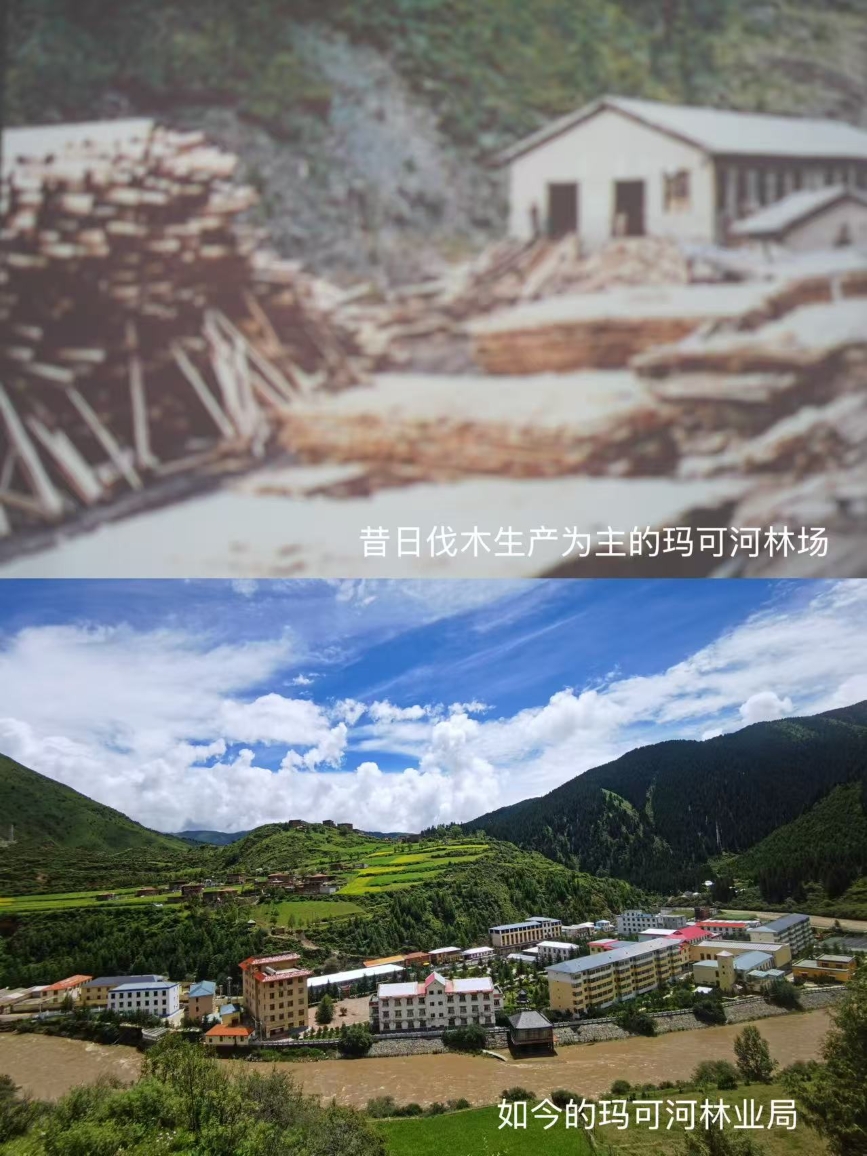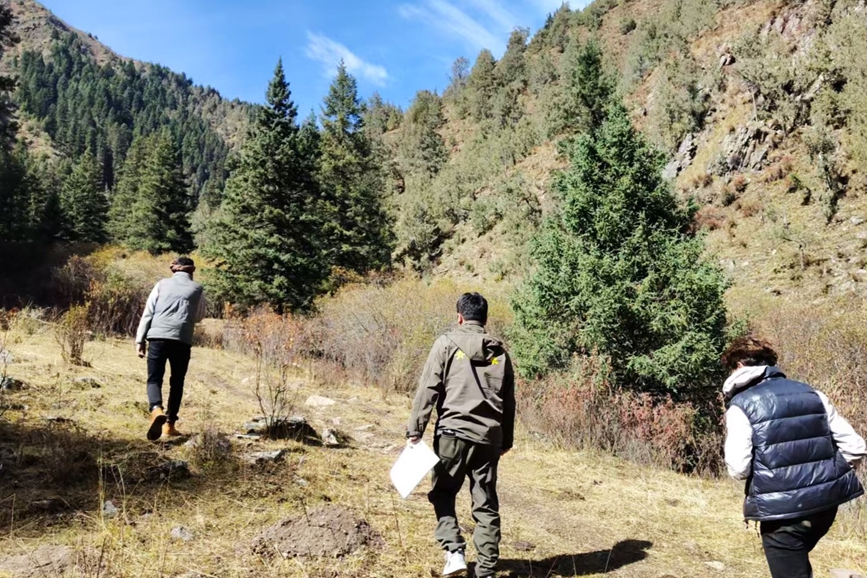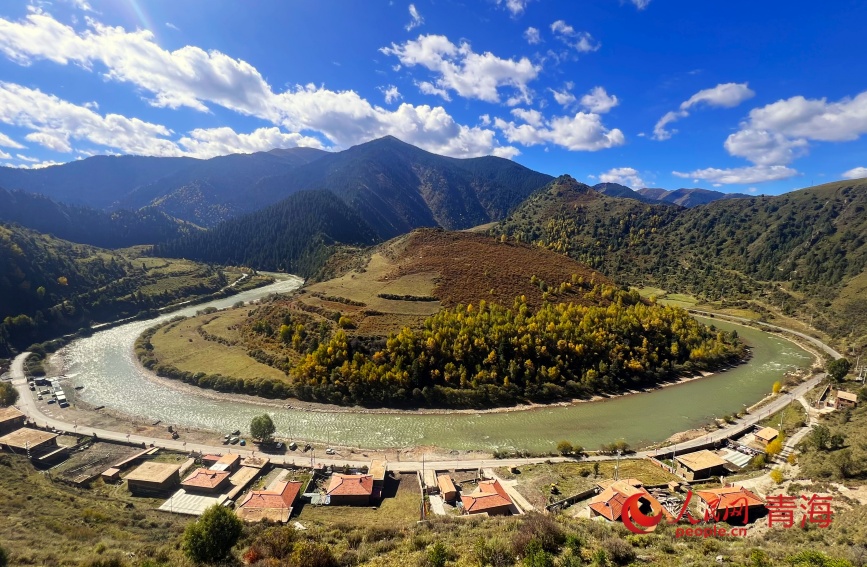




- BRNN
- BRI News
- BRNN News
- Database
Official Documents Polices and Regulations
Inter-government Documents International Cooperation BRI Countries
Business Guide Economic Data BRI Data
Trade
Investment Projects Latest projects
Cases - Content Pool
In the early morning, 56-year-old forest ranger Dongwa Eben hopped on a motorcycle and headed into the mountains with his companions in Dengta township, Baima county, Golog Tibetan Autonomous Prefecture, northwest China's Qinghai Province. He is responsible for patrolling the Yaba Valley of the Friendship Forest Farm in the Make River forest area.

Dongwa Eben and his companions patrol the Yaba valley of the Friendship Forest Farm in the Make River forest area in Baima county, Golog Tibetan Autonomous Prefecture, northwest China's Qinghai Province. (People's Daily Online/Gan Haiqiong)
Deep in the valley, he checked the growth of a Balfour's spruce that is 874 years old. Dongwa Eben now patrols the forest every day, monitoring wildlife and plant life and keeping destructive activities in check.
In 1965, the Make River Forest Farm was founded.
"In my grandfather's time, the forest farm's main job was cutting trees," said Bai Haipeng, deputy head of the Banqian Forest Farm under the Make River Forestry Bureau.
Back then, logging was considered a proud mission. As one of Qinghai's major timber bases, the Make River forest area supplied nearly 700,000 cubic meters of commercial wood to the country. But as the trees fell, the forest coverage rate dropped from nearly 70 percent to 51 percent, and the ecosystem began to fail.

Combo photo shows the past and present of the Make River forest area in Baima county, Golog Tibetan Autonomous Prefecture, northwest China's Qinghai Province. (Photo/Liu Ping)
In 1998, an emergency program was launched to protect natural forests along the Yangtze River, and the Make River forest area became the first in Qinghai to halt logging.
"At first, no one at the forest farm knew what work looked like without logging," recalled Tao Yongming, deputy director of the Make River Forestry Bureau.
The turning point came in 2006, when the bureau became a public-welfare institution and made ecological protection its core mission.
Tao said the region then built a communitywide protection network involving forest farms, rangers, villagers committees, village Party committees and herding households, and 259 local residents joined as ecological stewards.
"When I first became a ranger in 1998, many of the hills were completely bare. Look at them now. The lighter-colored stands on the mountainside are the areas we replanted. They have already grown tall," said Ju Ele, a ranger from Wangrou village.
The village once lived off logging, and incomes dropped sharply when that work stopped, but as ecological protection jobs, public-service roles and under-forest industries grew, villagers found steady new ways to make a living.

Forest rangers patrol Wangrou Forest Farm, Baima county, Golog Tibetan Autonomous Prefecture, northwest China's Qinghai Province. (Photo/Dong'a Ana)
"Over the past decade, the Make River Forestry Bureau has helped local people earn more than 60 million yuan ($8.4 million) through ecological stewardship, afforestation and seedling cultivation," said Liu Ping, a staff member at the Make River Forestry Bureau.
"Forest coverage has risen to 69.58 percent, and total forest stock has reached 4.8 million cubic meters," Tao said, adding that over the past two decades the Make River forest area has seen 115,000 mu (about 7,666 hectares) of new forests planted.
At the Dengta management station of the Make River Forestry Bureau, a large screen shows real-time images from across the forest. The new monitoring system protects forest and grassland resources and provides early fire warnings. At night, it uses infrared sensors and smoke detection, and during the day it switches to visible-light cameras. It basically covers the entire area, said Wu Wenjun, head of the Dengta management station.

Tao Yongming, deputy director of the Make River Forestry Bureau, demonstrates an early fire-warning system. (People's Daily Online/Gan Haiqiong)
"We've built 34 monitoring points like this, covering 90 percent of major valleys," said Huang Zhaxi, who leads the bureau's fire-warning division. Drones, infrared cameras and intelligent fire-prevention systems have sharply improved efficiency. The Make River forest area has now gone 38 straight years without a major forest fire.

A view of the Make River in Golog Tibetan Autonomous Prefecture, northwest China's Qinghai Province. (People's Daily Online/Gan Haiqiong)

Tel:86-10-65363107, 86-10-65368220, 86-10-65363106